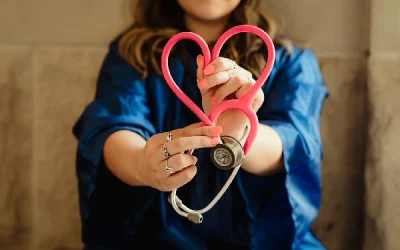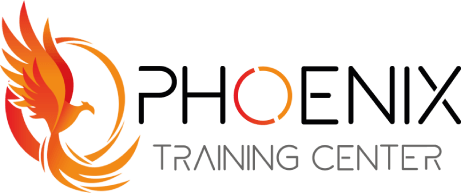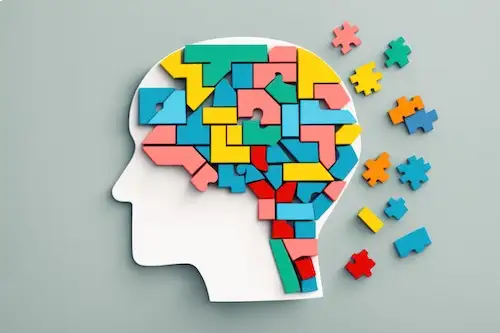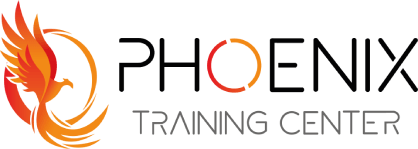- Antalya, Dublin, Istanbul
- One-Week course
Emotional Resilience, Well-being and Intercultural Communication for Healthcare Professionals
Emotional Resilience, Well-being and Intercultural Communication for Healthcare Professionals
Emotional Resilience, Well-being and Intercultural Communication for Healthcare Professionals
Strengthen resilience and intercultural communication with our ‘Emotional Resilience, Well-being, and Intercultural Communication for Healthcare Professionals’ course. Learn strategies to manage stress, support well-being, and communicate effectively across cultures.
The ‘Emotional Resilience, Well-being, and Intercultural Communication for Healthcare Professionals’ course is a crucial part of the Erasmus training program, designed specifically to address the unique challenges faced by healthcare workers in today’s multicultural and demanding environments. This course is particularly beneficial for healthcare professionals seeking to develop emotional resilience, manage stress, enhance their well-being, and communicate effectively with patients and colleagues from diverse cultural backgrounds.
Healthcare is a highly demanding field where professionals are regularly exposed to high-stress situations and emotionally challenging experiences. These stressors can affect their mental and physical well-being, and if left unaddressed, can lead to burnout. This course begins with an in-depth understanding of emotional resilience, focusing on strategies to build and sustain resilience in the face of adversity. Participants will learn techniques for managing stress, maintaining a positive mindset, and cultivating self-awareness. They will be introduced to relaxation exercises, mindfulness practices, and strategies for balancing personal and professional lives to achieve a sense of well-being.
The course will also explore the importance of intercultural communication in healthcare settings. With growing cultural diversity among patients and colleagues, healthcare professionals must navigate various cultural norms, beliefs, and communication styles. Participants will examine the foundations of intercultural competence, learning how to recognize and respect cultural differences while communicating effectively and compassionately. The course will cover key topics such as active listening, empathy, non-verbal communication, and techniques for overcoming language barriers. Role-playing exercises, case studies, and group discussions will allow participants to apply these techniques in realistic scenarios, building confidence and cultural sensitivity.
Furthermore, the course addresses self-care strategies and stress management tailored to the healthcare profession. It emphasizes the need for healthcare workers to prioritize their own health and mental well-being, equipping them with practical tools to manage the demands of their roles. Participants will learn about time management, emotional regulation, and setting healthy boundaries, all of which are essential skills for maintaining a sustainable work-life balance.
By the end of the course, healthcare professionals will have a comprehensive understanding of how to manage stress effectively, maintain their well-being, and communicate respectfully and effectively in multicultural environments. Equipped with a toolkit of practical skills, they will be prepared to navigate the complexities of healthcare with emotional resilience, cultural sensitivity, and an enhanced sense of personal and professional well-being.
- Develop Emotional Resilience Skills: Equip healthcare professionals with strategies to build and sustain emotional resilience in high-stress environments.
- Enhance Stress Management Techniques: Teach effective methods to manage and reduce stress to prevent burnout.
- Promote Mental and Physical Well-being: Provide tools to prioritize personal well-being through self-care and work-life balance strategies.
- Cultivate Mindfulness and Emotional Regulation: Introduce mindfulness practices and emotional regulation techniques tailored to healthcare professionals.
- Foster Intercultural Communication Skills: Strengthen communication skills for effectively interacting with patients and colleagues from diverse cultural backgrounds.
- Improve Empathy and Active Listening: Enhance skills in empathy and active listening to foster compassionate patient care.
- Develop Competence in Non-Verbal Communication: Teach participants to recognize and interpret non-verbal cues in intercultural interactions.
- Apply Conflict Resolution in Multicultural Settings: Equip participants with strategies for managing and resolving conflicts in multicultural healthcare environments.
- Proficiency in Emotional Resilience Techniques: Participants will demonstrate proficiency in techniques to build and maintain emotional resilience.
- Effective Stress Management Skills: Healthcare professionals will apply stress management techniques to prevent burnout and promote well-being.
- Improved Work-Life Balance: Participants will implement self-care practices that support a sustainable work-life balance.
- Mindfulness and Emotional Regulation: Professionals will integrate mindfulness practices and emotional regulation skills into their daily routines.
- Enhanced Intercultural Communication Skills: Participants will confidently communicate with patients and colleagues from diverse cultural backgrounds.
- Increased Empathy and Compassionate Care: Healthcare professionals will apply empathy and active listening skills to enhance patient care.
- Proficiency in Non-Verbal Communication: Participants will recognize and interpret non-verbal cues, adapting their communication style accordingly.
- Competency in Conflict Resolution: Professionals will use conflict resolution strategies effectively in multicultural settings.
- Commitment to Ongoing Well-being Practices: Participants will adopt a commitment to ongoing well-being practices for both personal and professional growth.
Day 1: Introduction to Emotional Resilience and Well-being in Healthcare
- Overview of the course objectives and structure.
- Discussion on the unique challenges of maintaining resilience in healthcare settings.
- Introduction to the concept of emotional resilience and its importance.
- Group activity: Identifying personal resilience strengths and areas for improvement.
- Workshop on stress triggers in healthcare and initial strategies for managing them.
Day 2: Building Emotional Resilience Skills
- Exploration of resilience-building techniques tailored for healthcare professionals.
- Practice session on emotional regulation and maintaining calm under pressure.
- Workshop on adaptive thinking and maintaining a positive mindset.
- Group exercise on problem-solving in high-stress scenarios.
- Reflection and journaling on personal resilience goals.
Day 3: Mindfulness and Stress Management Techniques
- Introduction to mindfulness practices and their benefits in healthcare.
- Guided session on breathing exercises and progressive muscle relaxation.
- Workshop on integrating mindfulness into daily routines.
- Group practice of visualization and grounding techniques.
- Discussion on maintaining mindfulness in high-stress or emergency situations.
Day 4: Foundations of Intercultural Communication
- Overview of cultural diversity in healthcare and its impact on patient care.
- Introduction to key concepts in intercultural communication, including cultural competence.
- Workshop on active listening and adapting to diverse communication styles.
- Role-playing exercises to practice culturally sensitive communication.
- Reflection on personal cultural biases and strategies for overcoming them.
Day 5: Enhancing Empathy and Non-Verbal Communication Skills
- Exploration of empathy’s role in patient-centered care and team dynamics.
- Practical exercises on active listening and demonstrating empathy.
- Workshop on interpreting non-verbal cues across cultures.
- Group activity: Practicing empathy through patient scenarios.
- Self-assessment and reflection on non-verbal communication habits.
Day 6: Conflict Resolution in Multicultural Healthcare Settings
- Discussion on common sources of conflict in multicultural environments.
- Introduction to conflict resolution models and their application in healthcare.
- Workshop on de-escalation techniques and maintaining professionalism under pressure.
- Role-playing exercises to practice conflict resolution skills in diverse scenarios.
- Developing a personal plan for managing and resolving conflicts with cultural sensitivity.
Day 7: Action Planning for Sustainable Well-being and Resilience
- Developing a personalized well-being plan, including resilience and self-care practices.
- Group presentations of individual action plans with peer feedback.
- Discussion on strategies for maintaining well-being over the long term.
- Reflection session on course learning outcomes and personal growth.
- Course wrap-up: Q&A, resource sharing, and ongoing support networks.
Past participants say...
SEVERAL UNIQUE COURSES
Other Courses You May Like
- Antalya, Dublin, Düsseldorf, Istanbul
- One-Week course
- Antalya, Dublin, Istanbul
- One-Week course
- Antalya, Cologne, Düsseldorf, Frankfurt, Istanbul
- One-Week course
- Antalya, Cologne, Dublin, Düsseldorf, Frankfurt, Istanbul
- One-Week course
- Antalya, Cologne, Dublin, Düsseldorf, Frankfurt, Istanbul
- One-Week course
Previous
Next

-
Certificate
Yes -
Cost
€80/day -
Language
English -
Duration
One-Week course
prereg button test
All Available Dates
= confirmed date
How Can We Help?
If you require any further details or if you have question? Please don’t hesitate to contact us.
- info@phxtraining.com
OID: E10339609









